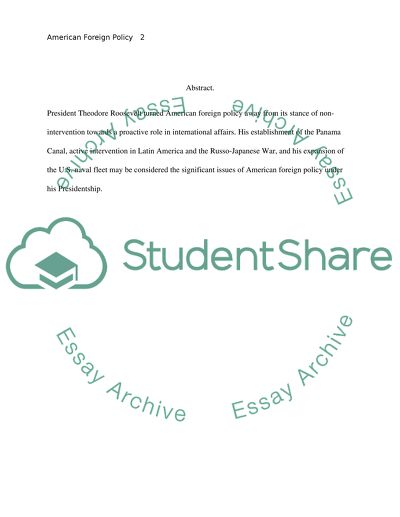Retrieved from https://studentshare.org/miscellaneous/1545970-what-were-the-significant-issues-of-american-foreign-policy-under-president-theodore-roosevelt-explain
https://studentshare.org/miscellaneous/1545970-what-were-the-significant-issues-of-american-foreign-policy-under-president-theodore-roosevelt-explain.


